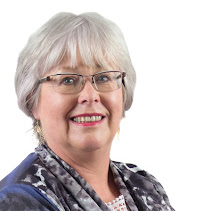
Jenny's concerns that elementary level Emirati college students in her college have limited listening practice outside of the classroom, led to the idea that podcasts could be a viable addition to student resources. Podcast is a term derived from two words ‘iPod’ and ‘broadcast’. It is an audio recording hosted on a server, which through RSS technology, pushes the recording to a mobile device once the user has subscribed to this service. The ‘push’ nature of the technology which automates downloads is valuable as learners are alerted to new recordings and are available on demand.

The advantages of podcasts for learning are well documented (Godwin-Jones, 2005, Thomas, 2006) but there is less documentation available about their use for second language acquisition. ‘Listening’ practice in second language educational institutions is usually afforded by teacher controlled cassettes or CDs and as such language acquisition practices appear to lag behind technology (Wong, 2005). Podcasts could maximize learning opportunities owing to their portability and on-demand nature and additionally are valuable, in combination with a recording device, for capturing and reviewing a learner’s own speech (Kaplan-Lieserson, 2005). Listening is a passive skill and is more suited to delivery via innovative technology than other language skills (Wong, 2005). Keegan in Thomas (2005) states that language education remains one of the most innovative disciplinary areas for the development of new learning technologies in the emerging mobile learning arena.

Chan & Lee (2005) advocate podcasting for self-directed studies to reduce anxiety levels associated with listening activities. Jenny's learners’ preference for not sitting at a computer when studying, together with the growing demand for mobile devices give credence to this idea of portable ‘pushed’ listening resources (Kaplan-Leiserson, 2005). An investigation of whether the use of podcasts would enhance and support the acquisition of a second language thus ensued.
Method
University of Southern Queensland’s FET8604 students were asked to access a contextualized podcast, view extension activities and respond to evaluative questions. The questions phrased the objectives of the investigation focusing on ease of access and quality of the learning.

Results
A consensus of opinions saw that access and subscription to the podcast was not difficult as long as there was clear support and guidance. This ‘push’ technology was seen as a distinct advantage for vision impaired students. These results support Kaplan-Lieserson’s (2005) specific criteria regarding the length, and clarity of recording as well as appropriateness of language level. It was agreed that voices should be used contextually, with a variety of voices for interest. Because listening alone does not enhance language acquisition support materials are necessary to provide a medium for interaction with the language (Collins and Berge, 1996) and for recycling that language in related contexts (Krashen in Schutz, 2002). The learner should control the device, explore different media such as video clippings as well as reflect on and action language through writing activities.
Implications for Pedagogy
In these circumstances the use of the podcast facilitates learning through interaction. Vygotsky’s socio-cognitivist theory supports the scaffolding required for learning in this event. Student opinion saw support for instructivist pedagogy owing to the singular nature of listening and the need to learn vocabulary. The learner-centeredness of the activity supports constructivism (Gunawardena & Zittle, 1996) while the technologies required to ‘push’ listening to the mobile device and connect to support material lent credence to connectivism. Irrespective of the theory, the students concluded that using podcasts enhanced opportunities for learning especially if a variety of learning styles were addressed in the support material. Maor (2005) proposes that it is not the tool itself but rather how the tool is used that enhances learning. Further use of technology will benefit teachers and students and be pedagogically sound when everyone’s interests are brought together (Thomas, 2006, and Kim & Bonk, 2006).
What do you think?
Have you used podcasts in your teaching environment? Tell us about your experiences.
"To achieve shifts in education practices teachers must alter their pedagogical approaches and must be convinced to make the leap to a different mode of professional activity." (Dede n.d.)
Would making the 'leap' described above improve students' learning?
Post your comments - we'd love to hear from you.
